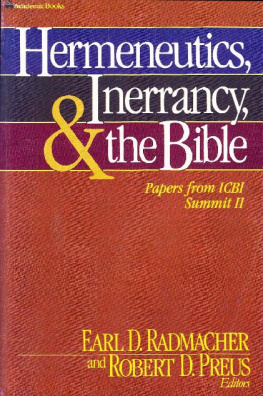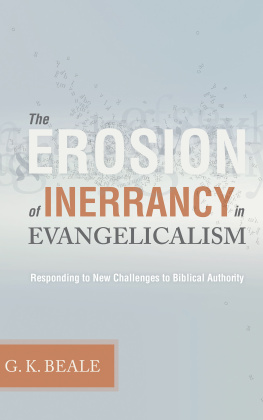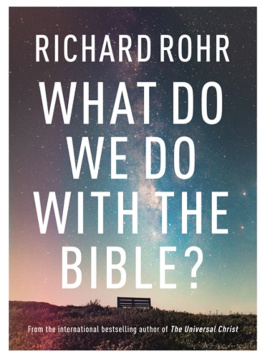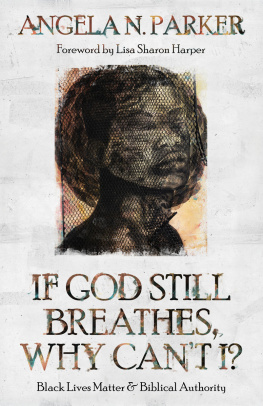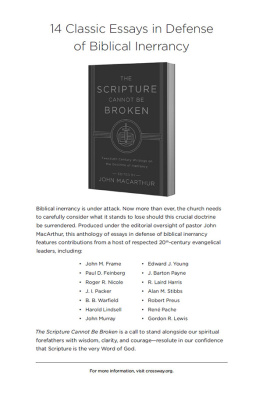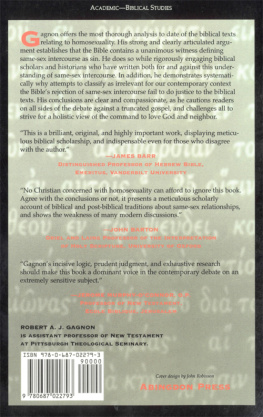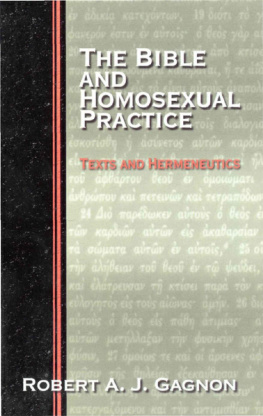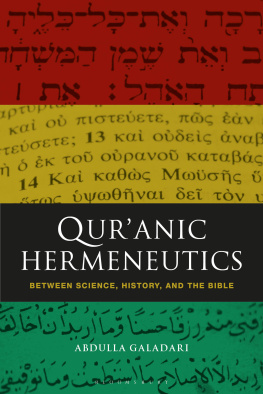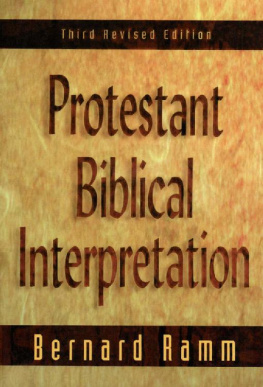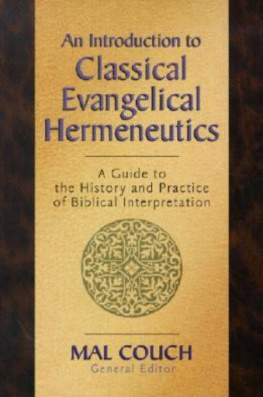Earl Radmacher - Hermeneutics, inerrancy, and the Bible: papers from ICBI Summit II
Here you can read online Earl Radmacher - Hermeneutics, inerrancy, and the Bible: papers from ICBI Summit II full text of the book (entire story) in english for free. Download pdf and epub, get meaning, cover and reviews about this ebook. year: 1984, publisher: Academie Books, genre: Religion. Description of the work, (preface) as well as reviews are available. Best literature library LitArk.com created for fans of good reading and offers a wide selection of genres:
Romance novel
Science fiction
Adventure
Detective
Science
History
Home and family
Prose
Art
Politics
Computer
Non-fiction
Religion
Business
Children
Humor
Choose a favorite category and find really read worthwhile books. Enjoy immersion in the world of imagination, feel the emotions of the characters or learn something new for yourself, make an fascinating discovery.
- Book:Hermeneutics, inerrancy, and the Bible: papers from ICBI Summit II
- Author:
- Publisher:Academie Books
- Genre:
- Year:1984
- Rating:5 / 5
- Favourites:Add to favourites
- Your mark:
- 100
- 1
- 2
- 3
- 4
- 5
Hermeneutics, inerrancy, and the Bible: papers from ICBI Summit II: summary, description and annotation
We offer to read an annotation, description, summary or preface (depends on what the author of the book "Hermeneutics, inerrancy, and the Bible: papers from ICBI Summit II" wrote himself). If you haven't found the necessary information about the book — write in the comments, we will try to find it.
Earl Radmacher: author's other books
Who wrote Hermeneutics, inerrancy, and the Bible: papers from ICBI Summit II? Find out the surname, the name of the author of the book and a list of all author's works by series.
Hermeneutics, inerrancy, and the Bible: papers from ICBI Summit II — read online for free the complete book (whole text) full work
Below is the text of the book, divided by pages. System saving the place of the last page read, allows you to conveniently read the book "Hermeneutics, inerrancy, and the Bible: papers from ICBI Summit II" online for free, without having to search again every time where you left off. Put a bookmark, and you can go to the page where you finished reading at any time.
Font size:
Interval:
Bookmark:
This paper was the message delivered at the closing session of the Summit II: Hermeneutics Conference. It is included here because it summarizes the issues of the conference and affirms the role of the Bible in todays world.
At this stage of our gathering you have already survived more papers and presentations than the apostles may have endured in a lifetime. I am not suggesting that they would necessarily have been displeased with what we have been doingor at any rate, with our authorial intentionalthough I do not think many of them would have stayed by for these closing remarks, I have been tempted to forgo them myself. But Dr. Radmacher, who by name is a wheel-maker, not being content with the wheels within wheels that your groups have provided, has added yet another wheelnot a big wheel, as you will soon realizebut a spare wheel, or a wheel that I wish he had spared, and perhaps you also.
You have heard the Scripture. It speaks of the unfettered Word of God, of the truth of God that we are to handle rightly. In the forefront Paul keeps the risen Jesus, who burst the bonds of the tomb, and he holds before us the resurrection to come, and assures us that the Lord knows which people are His. Paul also warns against needless disputes about words and godless chatter. He is passionately devoted to the truth and Word of God, and he is against semantics that sag out of this divine orbit and serve shoddy and earthly causes.
Ours is a mass media age and with the dawning computer age threatens to drown us in verbage. Will the truth of God be smothered by these torrents of modernity, by the words of man infallibly reproduced by computer systems?
No, says Paul; the Word of God cannot be fettered. Remember Jesus Christ risen from the dead. In Gods great plan and purpose the Word in Scripture and the Word incarnate are indissolubly linked. They cannot be bound, but have the final say.
You have had two major working conferences. Against radical and mediating scholars who would bind the Bible by all manner of critical concession you have affirmed the inerrantly inspired Word of God; what God inspires is inerrant, and all Scriptureas Paul said is God-breathed. Scripture must not be bound, you affirmed, by speculative theories that strip away its truth segment by segment until the reader is left with fragments of the comprehensive revelation of God.
Now the second working conference, on hermeneutical concerns, draws to a close. Against those who would frustrate the meaning and truth of scriptural revelation by interpretative artifices alien to the Christian heritage you have championed the literal sense of Scripture and insisted that neither the culture-rootedness of language nor the rise of science-oriented civilization nullifies the objective and universal authority of the Bible. You speak not from haughty pedestals of pride but from compassionate and anguished hearts. All of us lament the loss, by many theologians professing to speak for the Christian movement, of the objective reality of God and of the objective truth of His revelation. We see no sure outcome of this defection from the living God and His scriptural disclosure, other than looming skepticism and nihilism.
For two generations mediating theologies have been yielding to increasingly unstable alternatives; understanding of God collapses into self-understanding and the living God expires into the dying godnot the God Man who dies for sinners and rises to return in triumph, but rather the man-gods postulated by a generation fashioning divinity in its own likeness and image. The loss of absolutes absolute truth, absolute right and wrongfollows from speculative efforts to vindicate truth and goodness independent of the living God who makes His nature and will known. The edifice of the Enlightenment, which charitably retained the supernatural, yet separated from the God of miraculous revelation and redemption the whole enterprise of nature, history, law, and every other discipline of study, is crumbling. All the intermediary godlings are disintegrating with it including religion itself carrying a universal validity claim, the special worth and dignity of man, a meaningful universe, and a patterned history. All are now buckling under to despairing hedonism.
Let God be God, we implore. Let us hear again the life-giving Word of the Lord who summons all humankind to divine truth and to the holy.
Some fifty-five years ago I first read a Bible. Though my mother was nominally Roman Catholic and my father nominally Lutheran our home had no Bible until I acquired a copy by removing it from the pew racks of the Episcopal Sunday School that I attended. I began reading the Gospel stories of Jesus resurrection from the dead, cautiously maneuvering through the accounts much as a moth circles a flame.
Little did I realize that I was not the first to steal the Bible. The medieval church had kept the Book from the masses for whom it was intended and we evangelicals often keep it from nurturing our own lives. But in recent years a different type of theft has emerged as some fellow evangelicals, along with non-evangelicals, wrest from the Bible segments that they derogate as no longer Word of God. Some now even introduce authorial intention or the cultural context of language as specious rationalizations for this crime against the Bible, much as some rapist might assure me that he is assaulting my wife for my own or for her good. They misuse Scripture in order to champion as biblically true what in fact does violence to Scripture. It is one of the ironies of church history that even some professed evangelicals now speak concessively of divine revelation itself as culture-conditioned, and do so at the precise moment in Western history when the secular dogma of the cultural relativity of all truth and morality and religious belief needs fervent challenging.
In challenging the concessive mode of the day we must avoid certain temptations. One temptation is to overstate the strength of the critical camp and to under-represent the evangelical enterprise as but a corporals guard or Gideons band. Among teachers and clergy the defections from a fully authoritative Bible may be disconcertingly numerous. But the great masses of active churchgoers take the Bible at its word. There is no firm consensus or stability of outlook among those who hold a broken and inconsistent view of biblical authority.
A few years ago at the American Theological Societywhich considers the survival of biblical inerrantists about as viable as that of dinosaursI proposed that those present list the five problematic passages constituting their main barrier to belief in biblical inerrancy and which, if resolved, would encourage commitment to a fully authoritative Scripture. I went on to say that such an exercise would demonstrate two things: first, the lack of unanimity concerning where the problem lies; and second, that the real objection to biblical inerrancy is philosophical and speculative, thus no amount of resolution of particular problems will serve to reinstate the evangelical view.
We are emerging into an age in which critical scholars increasingly claim the inspiration of the Spirit for their own production of novel critical theories. The Spirit of God is said to have inspired not only Moses and Isaiah and Matthew, but also editorial redactors who supposedly composed the biblical writings in their final stages (and who therefore ought to get credit for many noble passages that tradition ascribes to the prophets, apostles and Jesus). The Holy Spirit is alleged to inspire scriptural commentary also (not only midrash, but even commentaries by modem publishers). Divine inspiration, it is now sometimes said, extends to the special insights of biblical critics in their highly professional enterprise. Who indeed in a characteristically exuberant age would not want to share in such a universal outpouring of the Spirit? We hear scholars talking about Gods inspiration not only of apocryphal but even of supposed pseudepig-raphous writings, with Second Peter considered such.
Font size:
Interval:
Bookmark:
Similar books «Hermeneutics, inerrancy, and the Bible: papers from ICBI Summit II»
Look at similar books to Hermeneutics, inerrancy, and the Bible: papers from ICBI Summit II. We have selected literature similar in name and meaning in the hope of providing readers with more options to find new, interesting, not yet read works.
Discussion, reviews of the book Hermeneutics, inerrancy, and the Bible: papers from ICBI Summit II and just readers' own opinions. Leave your comments, write what you think about the work, its meaning or the main characters. Specify what exactly you liked and what you didn't like, and why you think so.

